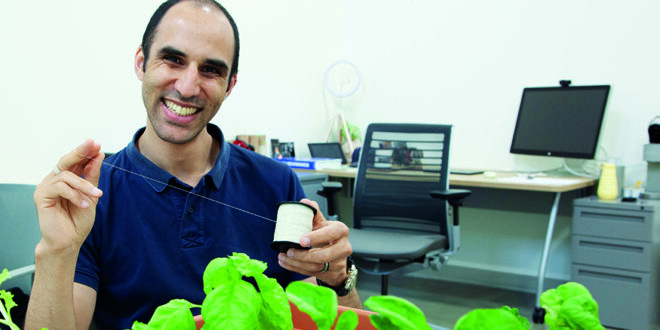Sci-Lume Labs: Developing a Greener Future for Fashion
Sci-Lume Labs, one of Oklahoma’s newest companies, is on a mission to revolutionize the fashion industry with its patent-pending product Bylon. Founder Oliver Shafaat hopes that Bylon, a synthetic fiber, will make clothes made of synthetic fibers more eco-friendly.
AXIS: A State-Certified Business Incubator
Sci-Lume Labs has moved into a space at AXIS, a state-certified small-business incubator located at Francis Tuttle Technology Center. AXIS has a range of businesses in its incubator, representing a part of the market that is growing across the world. According to Cara Evans, director of AXIS, sustainable startups and investments are one of the fastest-growing sectors in global entrepreneurship.
The Current Issues with Synthetic Fibers
Synthetically made plastic fibers such as nylon, Lycra, and polyester are the main contenders when it comes to making clothes. They are relatively strong materials that are inexpensive to produce, which makes them attractive to clothing manufacturers. However, the main issue with synthetic fibers is that once discarded in a landfill, they do not naturally break down into the soil or any other environment, leading to a lot of waste, especially in the fast fashion industry. Additionally, synthetic fibers are derived from oil, another process that emits pollutants and greenhouse gases.
Oliver Shafaat’s Vision for a More Sustainable Future
Oliver Shafaat, who received his Ph.D. in biochemistry and molecular biophysics from the California Institute of Technology, believes that the fashion industry can be made more sustainable. During his time at a Japanese biotech company, where he was introduced to the idea of using biotechnology to make apparel fibers, he began to study the science behind synthetic fibers and the possibility of creating a similar biodegradable product in a lab.
Bylon: A Sustainable Alternative to Synthetic Fibers
Sci-Lume’s patent-pending product Bylon is a breakthrough in the fashion industry. It is a synthetic fiber that is biodegradable and can be used to fit the current machines used to produce current synthetic fibers. Bylon is also melt-processable, recyclable, and it will breakdown over time should it end up in our environment. Fishing line is also made from synthetic fibers such as nylon. Bylon could be used as a more eco-friendly fishing line that could biodegrade in ponds should it have to be cut. Shafaat expects to have everything running by the summer.
Oklahoma City: The Right Place for a Startup
Originally from the Seattle area, Shafaat and his wife returned from Japan to Oklahoma to be near family. “Oklahoma City is both big and small; it’s big enough to have the facilities you need, but small enough for everyone to know everyone else,” he said. The space at AXIS will be used for product testing and producing the Bylon thread. By becoming a tenant at AXIS, Sci-Lume has gained access to help with the business side of its operation.
The Future of Sci-Lume Labs
Shafaat is dedicated to growing Sci-Lume Labs into something that could change the world. By building a brand and knowing what it takes to create a profitable company, he hopes to expand the reach of Bylon and create a more sustainable future for the fashion industry.
 Mind Uncharted Explore. Discover. Learn.
Mind Uncharted Explore. Discover. Learn.



